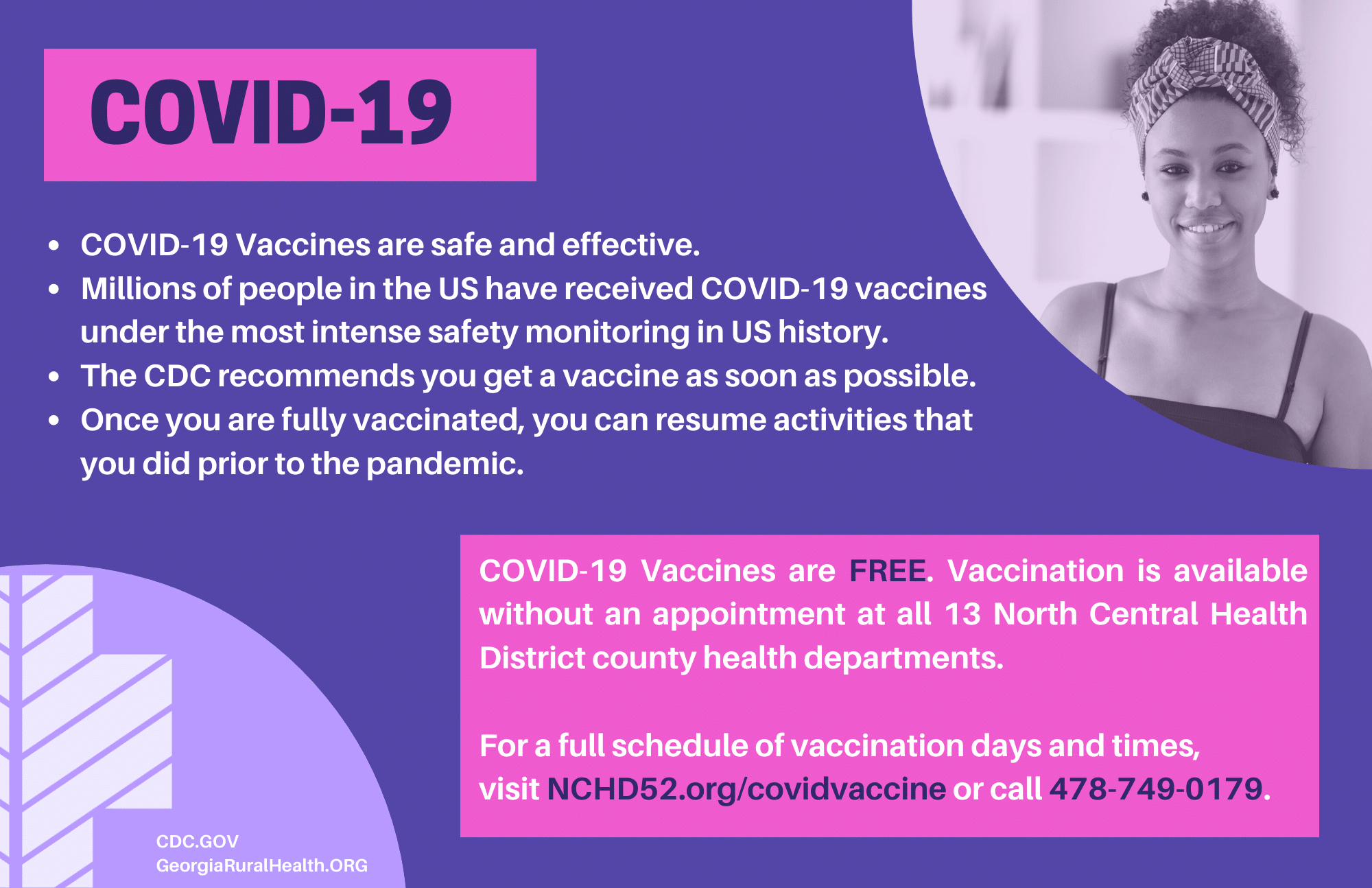
Several abstracts submitted by team members of the Georgia Rural Health Innovation Center were selected for the 2022 Georgia Public Health Association Annual Meeting. The 2022 Georgia Public Health Association (GPHA) Annual Meeting will convene in Jekyll Island, Georgia from May 4 to 6, 2022. Below you will find each selected abstract with a brief overview of the project.
“Preliminary Findings of a COVID-19 and Flu Vaccine Hesitancy Needs Assessment in a Rural Georgia County” by Dr. Kimberly Carr, et al.
In a collaborative partnership with the Georgia Department of Public Health, North Central Health District, the purpose of this assessment is to better understand COVID-19 and flu vaccine hesitancy among African American residents in Hancock County. This abstract highlights the needs assessment activities and preliminary data from May to July 2021.
“The Clergy and Health Provider Health Improvement Program” by Chris Scoggins, MPH, and Dr. Brian Childs and Dr. Greg DeLoach, Mercer University School of Medicine and McAfee School of Theology, Mercer University
Aligning influence and priorities across different groups in rural communities is critical to the success of health promotion activities. Programs that are community responsive and community-driven are often the most successful. This study outlines a new approach being piloted that seeks to align rural religious leaders and physicians to collectively tackle the pressing health needs in their communities. By building relationships and consensus among these highly influential community leaders the program seeks to foster wider community buy-in and to enhance program effectiveness.
“Farmers’ Mental Well-Being in Georgia: Pilot Study” by Dr. Anne Montgomery, et al.
Farming is a stressful occupation that is associated with increased levels of anxiety and depression. Exposure to high stress over long periods of time negatively impacts physical and mental health, which can lead to the development of stress-related diseases and disorders. The Georgia Rural Health Innovation Center at Mercer University partnered with Georgia Foundation for Agriculture to inventory the mental well-being, stressors, and coping mechanisms for farm-owners, farm-workers, farm-managers, and their spouses. The pilot survey ran from May 2021 through June 2021 and gathered responses from 536 respondents.
The main stressors of farmers are the weather and its effects on the farm, COVID-19’s effects on income, and fear of catching COVID-19. A third had suicidal ideation at least once in the past year. On average, they spend 1-3 hours per day worrying about stressors. Those without access to emergency medical care or routine medical care experienced higher levels of stress. Farmers with the highest PSS scores were also more likely to use unhealthy coping mechanisms, such as hitting or injuring themselves and using illicit drugs. The number one coping mechanism they turn to is alcohol. The healthier coping mechanism of recreational activities is inaccessible for 60% of farmers.
“Differences in stress coping mechanisms between farm owners and farm workers in Georgia’s farming industry” by Ben West, MBA, et al.
When the research focuses on the differences between farm owners and farm workers and their respective coping mechanisms used, the survey data indicated that the Perceived Stress Score of farm owners and farm workers are similar, with farm workers scoring slightly higher than farm owners on average. Survey participants were asked what they enjoy doing when they are feeling stressed, anxious, or depressed. Findings from survey participants indicate that the top answers were drinking alcohol (42%), exercising (38%), and engaging in a hobby (33%). However, there were significant differences in coping mechanisms between farm owners and farm workers. Farm owners are more likely to drink alcohol and write in a journal to cope with stress than farm workers. Farm workers tend to hit or injure themselves more often than farm owners, as well as hit or kick things and use cannabis.
“The relationship between farmers’ racial and ethnic identity and stressors experienced” by Dahlia Al-Haleem, MSES, et al.
The data from the farm working wellbeing study found that farmers identifying as members of underrepresented racial and ethnic groups reported being more bothered or distressed by issues than non-Hispanic Whites. Issues experienced include those related to health, business and finances, relationships, racism and discrimination, and climate change.
